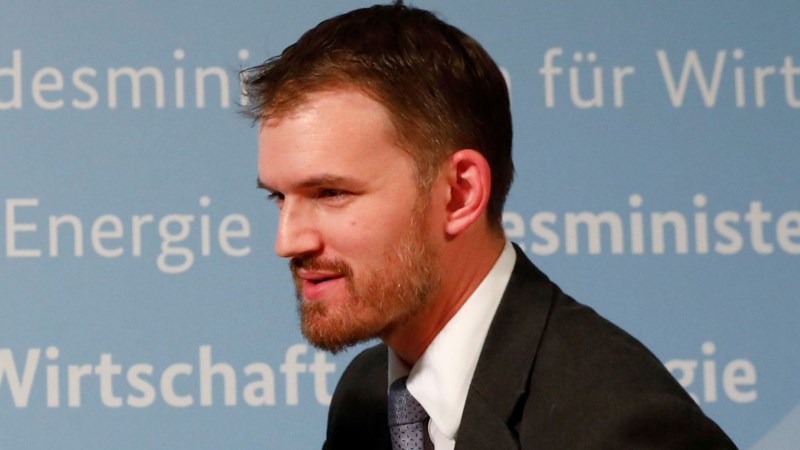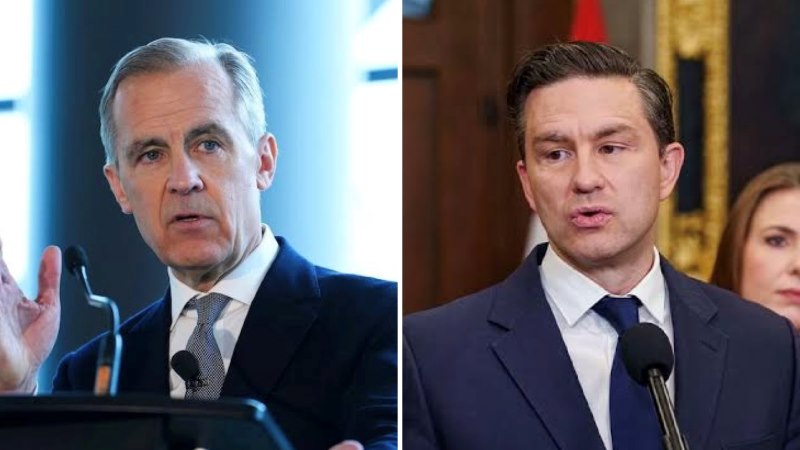World
Poilievre and Carney Compete on Income Tax Cuts Ahead of Election
Poilievre and Carney: Canadian Conservative Leader Pierre Poilievre is promising a more substantial income tax cut than Liberal Leader Mark Carney, as both politicians battle for voters facing high living costs. Poilievre’s plan includes lowering the marginal tax rate for the lowest income bracket by 2.25 percentage points to 12.75%, while Carney offers a smaller reduction of one percentage point to 14%.
Poilievre Highlights Cost of Living Concerns
Poilievre emphasized that Canadians are struggling with the rising cost of living. “Life has never been more costly,” he said during a campaign event in Brampton, Ontario. “You’re working harder, but your efforts aren’t yielding like they used to, and it feels as if you’re falling behind.”
Carney Calls for Stronger Mandate Amid Trade War Concerns
Carney, seeking to counter U.S. President Donald Trump’s trade war, called for a snap election on Sunday. With the ongoing threats to Canada’s economy, financial issues remain a central concern as Canadians prepare for the April 28 vote.
Tax Cuts and Savings for Canadians
Under Poilievre’s plan, the average worker earning C$57,000 ($39,740) would save C$900 annually, with dual-income households saving C$1,800. Carney’s proposal offers savings of up to C$825 for two-income families.

U.S. Trade Representative Jamieson Greer to Initiate Talks with China
U.S. Trade Representative Jamieson Greer is preparing for his first phone conversation with China’s trade counterpart next week…
Fiscal Impact: Poilievre’s Plan vs. Carney’s Proposal
Poilievre’s tax cut would cost the federal budget at least C$12 billion, while Carney’s plan is estimated to reduce revenue by about C$6 billion. Canada is facing a projected C$48.3 billion deficit this fiscal year.
Poilievre’s Approach to Fiscal Responsibility
Poilievre assured reporters that his party would release a fully costed platform detailing his fiscal strategy. He committed to finding one dollar in savings for every dollar of new spending and cutting government inefficiencies.
Both Leaders Pledge Increased Investment in Infrastructure
While both leaders aim to enhance infrastructure and defense investments, Carney also proposes using artificial intelligence to improve government productivity. He has suggested dividing the budget into two parts: an operating budget to be balanced and a capital-spending budget allowing for a modest deficit.
Carney Critiques Poilievre’s Tax Cuts and Potential Program Cuts
Carney warned that Poilievre’s tax cuts could threaten vital Liberal programs like subsidized child care and prescription drug coverage. He stressed the importance of balancing tax relief with support for vulnerable Canadians.
Economic Experts Weigh In on Election Promises
Rebekah Young, head of economics at Bank of Nova Scotia, stated that whichever party wins the election, Canada’s fiscal outlook will change. She noted that concerns about affordability, trade tensions, and healthcare dominate public discussions, overshadowing concerns about the federal deficit.


